Heinous events, but can Putin be held to account?
Russian soldiers are collecting bodies and burning them to destroy evidence, but there could be another path to justice.
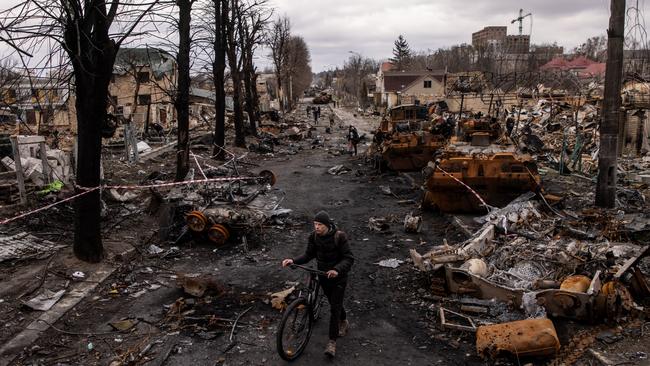
Australia only has to look at the protracted, frustrating and ultimately doomed attempts to hold Russia to account for killing 298 people, 38 of them Australian citizens or residents, in the aftermath of the Malaysia Airlines flight MH17 disaster to understand what awaits Ukraine’s pursuit of justice for the heinous events that have unfolded across its lands in the past six weeks.
And utter horror it has been, scenes reminiscent of the brutality last seen on the continent in the grisly Balkans conflicts.
In Bucha, a body is twisted and bent, forced into the round confines of a small well. Other men, shot in the back of the head, lie face down in the road, with arms tied behind their backs; arriving Ukrainian forces swerve their tanks to avoid crushing them. And just outside the town are two naked women and a man, their bodies only partially burned from a tyre set alight, perhaps to hide a rape. No one was safe, witnesses said. Early last month a drone captured footage of a man walking a bicycle down Ivano Franko street in the same town and being fired on by a tank as he turned a corner.
On the main road leading into Bucha are broken and crumpled cars, their fleeing passengers slumped and shot: a grandmother, a granddaughter, a mother. A neighbour was shot dead for daring to sit on his front porch. Fleeing in a car or sheltering in a basement was enough for the Russians to respond with unrelenting, lethal force.
New witness accounts of barbaric rapes and killings of women, executions of children and civilian torture across a range of towns close to the capital, Kyiv, are revealed every day.
And what atrocities will be uncovered in Mariupol as the starving population is forced to eat dogs and pigeons in dank destroyed basements? How many of the tiny babies, including at least one just a few hours old, will be found in the rubble underneath the Mariupol theatre? The Russians dropped a bomb that killed scores of pregnant women and vulnerable mothers sheltering there after their maternity hospital had been bombed a week earlier.
Then there are thousands of people, including hundreds of children, who gratefully boarded buses in Mariupol as a humanitarian corridor opened up last month, thinking they were escaping the nightmare of dwindling supplies and constant shelling. But they were deceived. They were kidnapped, ending up in Russia, and sent to economically depressed areas such as Tula or Taganrog.
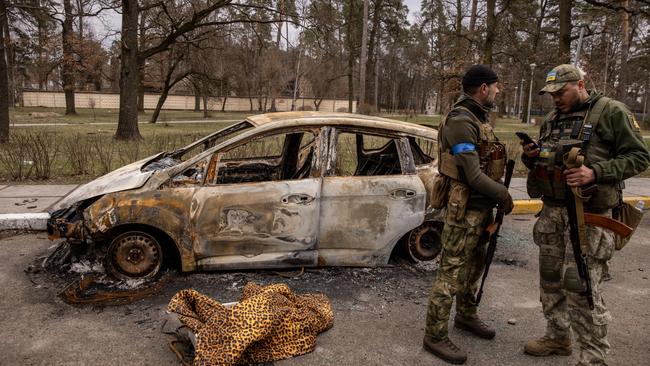
Reports from Mariupol suggest Russian soldiers have been collecting bodies and burning them in a mobile crematorium to destroy evidence of torture and executions of civilians, following the international condemnation of what occurred in Bucha.
Australian Foreign Minister Marise Payne was in Brussels on Wednesday for 20 hours of back-to-back meetings with US Secretary of State Antony Blinken, NATO officials and foreign ministers from the G7, and a 30-strong NATO alliance to formulate even stronger condemnations and a united front.
“It is a critical time,’’ Payne said, for Australia and the US to be closely joined in the response to the actions of authoritarian states that she described as “untenable, unacceptable, complete wholesale violators of international law”.
She said it was extremely important to be part of a co-ordinated and comprehensive response, especially to send a strong signal to other authoritarian countries such as China, Iran and North Korea.
“No matter where they behave like this, authoritarian states cannot be allowed to trample on the rights of democratic countries and other people who have chosen to live and work in those democracies – this is very important,’’ she said.
But as Payne knows too well – she was Australia’s defence minister in 2015 when the investigations into flight MH17 were escalating in forums outside an impotent UN Security Council – the ability to punish Vladimir Putin is, at the moment, remote.
Even with worthy speeches of international leaders, when it comes to sanctions, pragmatism and self-interest have resulted in some hesitancy.
Europe, particularly Germany, Hungary and Italy, are pinned down by their reliance on Russian gas. Trying to keep homes warm and industry cranking over to avoid a recession is funding Putin’s military campaigns.
Current military assistance to Ukraine is expensive and expansive but mainly limited to defensive weaponry, although Australia’s contribution of Bushmaster armoured tanks, as a “neutral” non-NATO, non-EU member, has found a loophole around NATO’s fear of provoking Putin towards nuclear or biological weapons.
Putin, 69, has already committed, in the eyes of the law, a war crime by launching “the aggression” against Ukraine on February 24. But proving the widespread slaughter of the Ukrainian citizenry is, in the legal sense, far more difficult, although “spies in the sky” drone footage has been accumulating in the arsenal of the International Criminal Court’s chief prosecutor, Karim Khan.
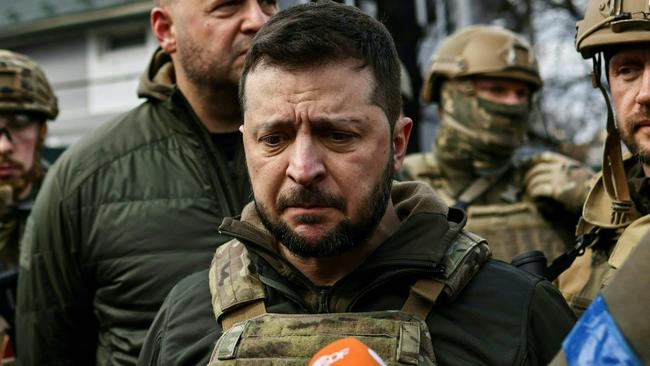
And the court of public opinion, outside Russia, already has made up its mind.
Holocaust scholar Eugene Finkel says he usually takes claims of genocide with a truckload of salt because it is commonly used by activists. But he says: “Not now. There are actions, there is intent. It’s as genocide as it gets. Pure, simple and for all to see.”
In 2014, not long after MH17 was blown out of the sky by a Russian Buk missile, Australia went to the UN Security Council. In 2015 the Dutch tried again. But at every turn Russia quickly vetoed any motion for an investigation by the UN’s International Court of Justice. The International Criminal Court, which is independent of the UN, was also discounted because Russia, along with the US and China, isn’t a signatory.
Thus the only means to hold Russia to account was with a painstaking lengthy joint criminal investigation by Australia, The Netherlands, Malaysia, Belgium and Ukraine.
The current MH17 court case, conducted by the Dutch public prosecution office against three Russians and one Ukrainian, took five years to start because finding a jurisdiction to hold it in was problematic. And the trial, so painful for the victims’ relatives and friends, is still ongoing eight years after the plane was ripped apart at 36,000 feet. Even if there is a guilty verdict, the quartet can’t be extradited to face any jail time.
Ukrainian President Volodymyr Zelensky’s frustration at the absence of any immediate way to stop Putin was evident during his speech to the UN Security Council on Tuesday, when he presented a graphic and sickening montage of brutalised victims to try to shock the world into action. “What is the point of having a Security Council if it can’t provide security for Ukraine?” he asked.
Russia, true to form, denied everything. Foreign Minister Sergey Lavrov insisted Bucha was “another fake attack” and then in a threat that was none too veiled, reminded the West that “India and China are Russia’s close partners”.
But Payne said it was important to hold Putin and the Russians to account.
“The (International Criminal) court statute does enable political and military leaders to be held responsible for war crimes committed under their authority or command. And that’s something that we take very seriously and we are strong supporters of that action,’’ she said.
Australia, as well as Britain, has helped fund forensic investigators to gather evidence from the sites of towns formerly occupied by the Russian forces.
Respected war crimes lawyer Geoffrey Robertson QC tells The Weekend Australian this work is crucial.
“We need to be able to refute all of Russia’s lies,’’ he says.
Robertson says the West has to play the long game with Putin, who “is without doubt guilty of the crime of aggression; and under Article 28 of the court’s charter he bears command responsibility”.
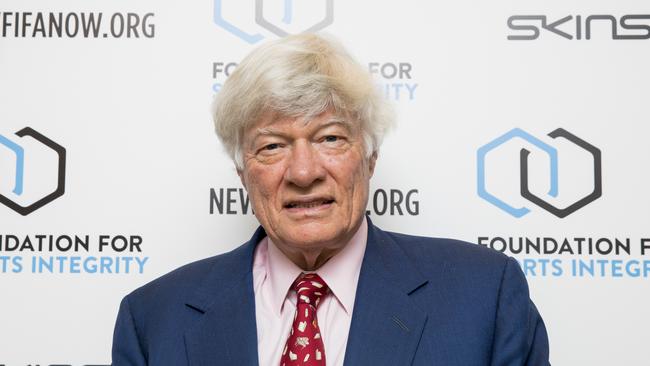
He believes if Putin is indicted soon, it could loosen his political grip, much as support for Serbian leader Slobodan Milosevic plunged in 1999 when he became the first head of state charged with war crimes for offences in Bosnia, Croatia and Kosovo.
“There is every reason to continue to pursue Putin in the court,” says Robertson.
“It is not pie in the sky that in the next 30 years of Putin’s life the Russian regime may change, he might want medical treatment in the West. We still have old Nazis hobbling to the dock in Germany; you never know.”
An interim finding by the International Court of Justice early in the invasion called on Russia to cease hostilities immediately. It has been ignored.
Mikhail Borodovsky, once close to the Kremlin only to spend 10 years in jail and become a fierce critic, says Putin will listen only when faced with force.
He told the German outlet DW that for years the West had perceived Putin as being a well-known dictator, autocrat, perhaps corrupt, but they still treated him as a statesman.
“The reality is he is different, he is a thug, his roots are in the (Russian spy agency) KGB, a mafia-style organisation that completely disregarded the law,’’ Borodovsky says.
“Any attempts to compromise without showing strength is a huge mistake, for it provides him to take further steps to attack. It is only when force is met with force is an agreement possible. Anyone who has witnessed the mafia years in the post-Soviet years understands that.
“I am glad now (US President Joe) Biden took the position ‘If you attack me I will attack you right back’.”
In Ukraine, opposition politician Kira Rudyk has called for as much evidence as possible from Ukrainians – even just diary notes – so Ukraine can impose its own revenge. She has obtained lists of soldiers who were stationed at Bucha and other towns via computer hackers.
“We will find every single person who was there … we will have the list of solders stationed there and that will be enough for us (to extract revenge),” she says.
In the meantime, Ukrainians have used facial recognition software to identify Russian soldiers at the express delivery company Cdek in Mazyr, Belarus, posting home the spoils of their looting.
Ukrainians have begun phoning the numbers that were submitted with the items – one soldier sent 120kg of air conditioner parts, another had 450kg of musical equipment, and the dispatch of dishwashers, computers and washing machines is common.
Recordings of the conversations have been posted on social media. This was one conversation to a Russian who had sent home a dishwasher.
Russian: “Who is this?”
Ukrainian: “Who is this? This is death you ____ thief. Remember this voice. I am coming to kill you scum.”


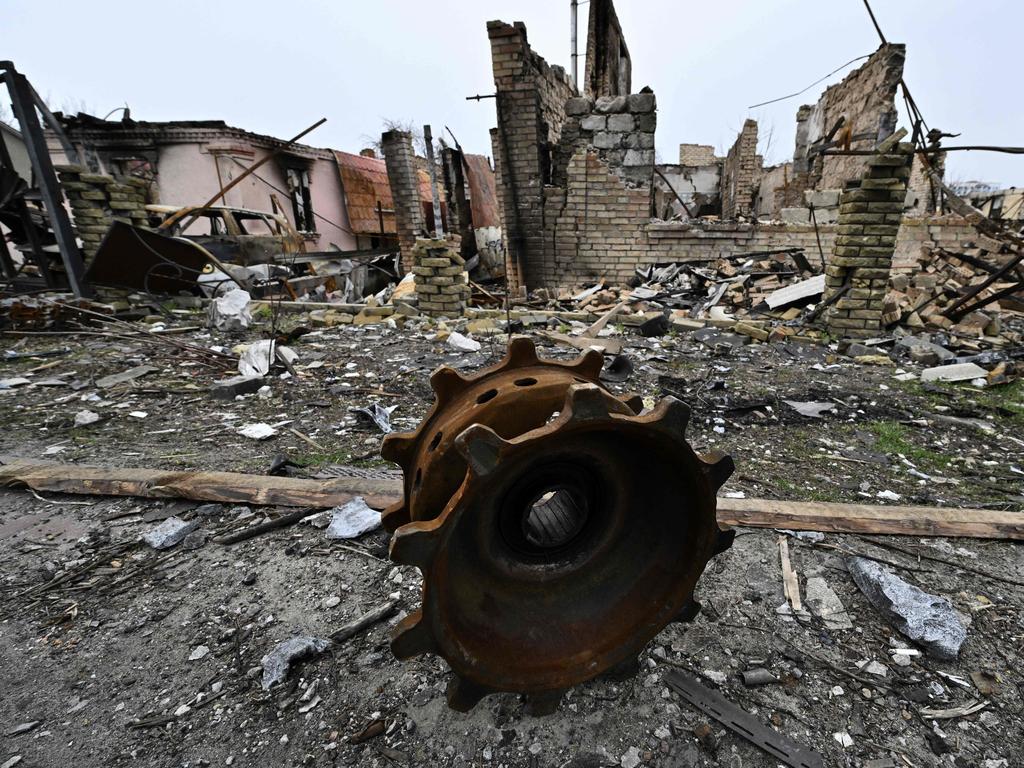

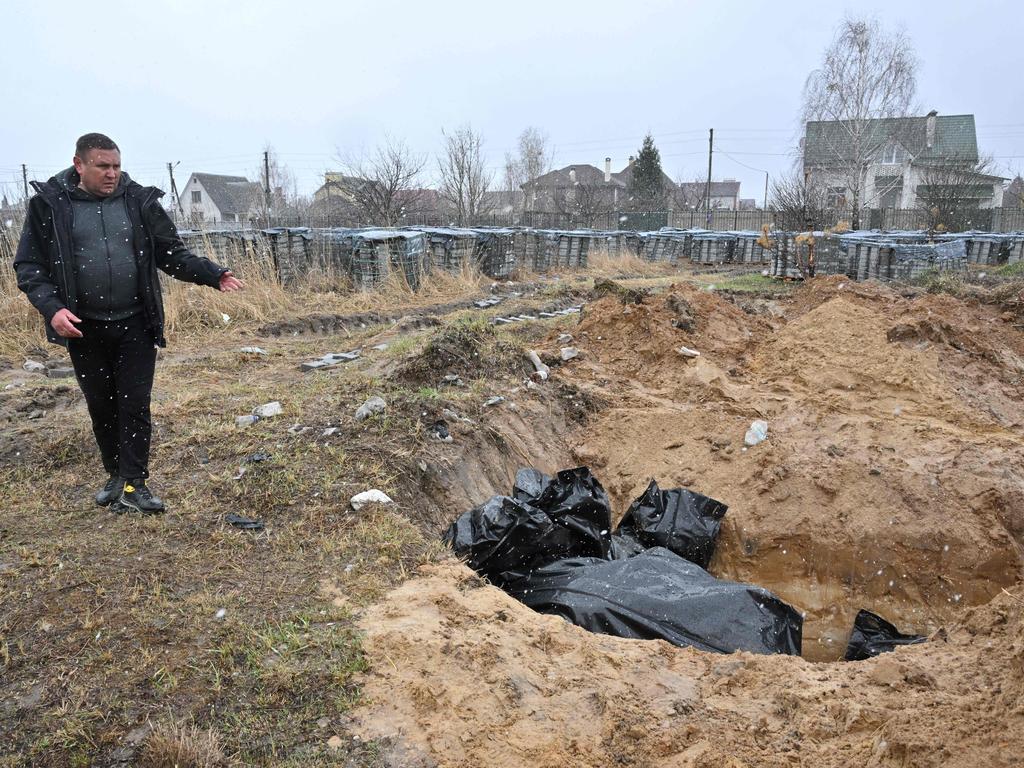
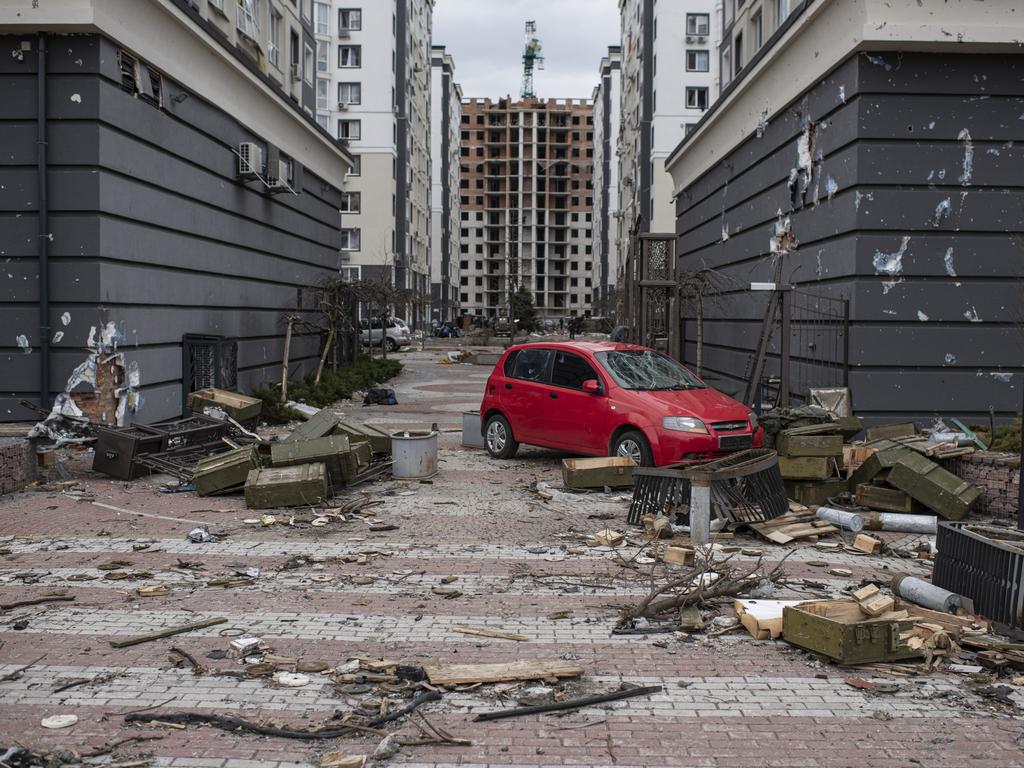
To join the conversation, please log in. Don't have an account? Register
Join the conversation, you are commenting as Logout